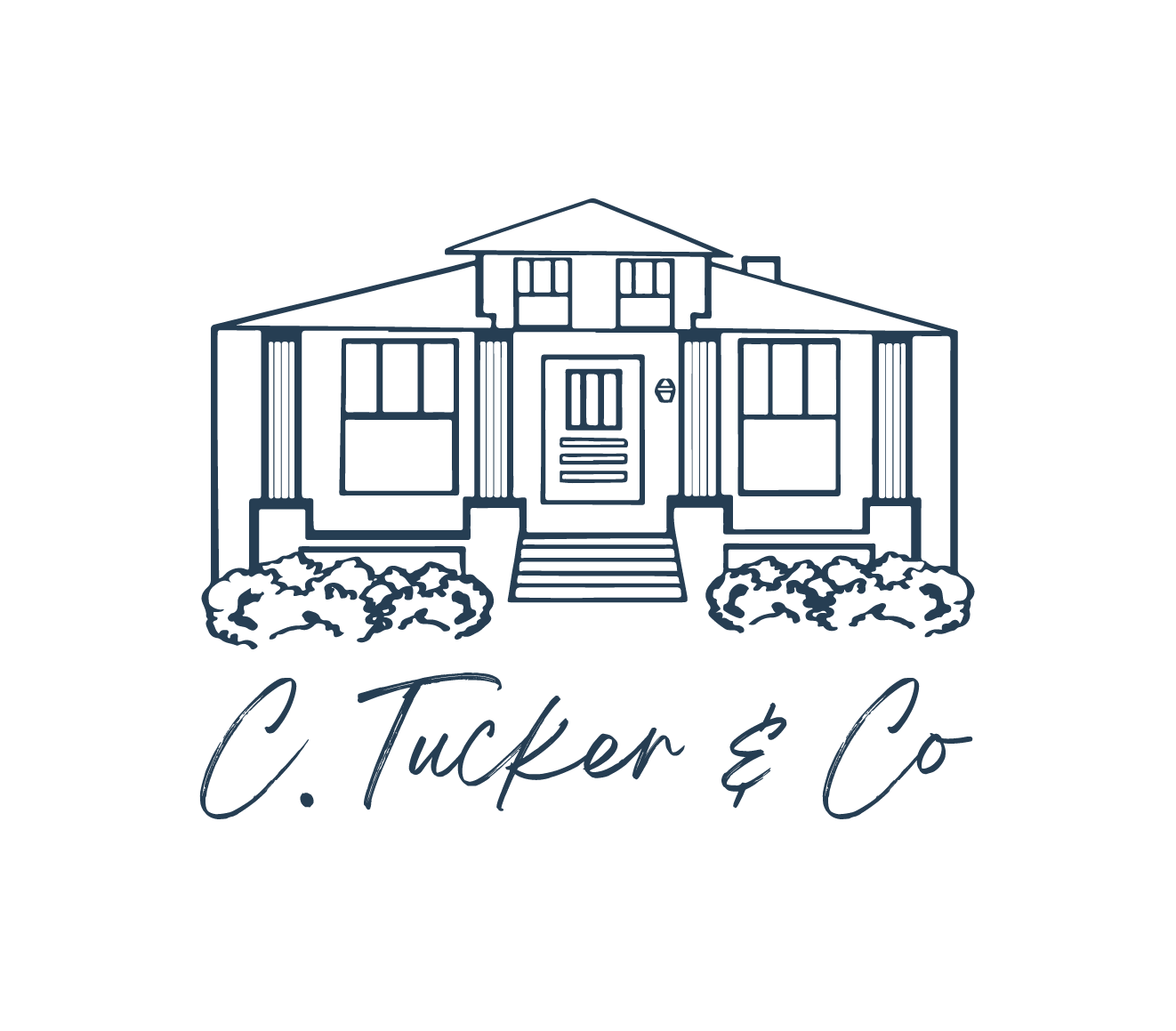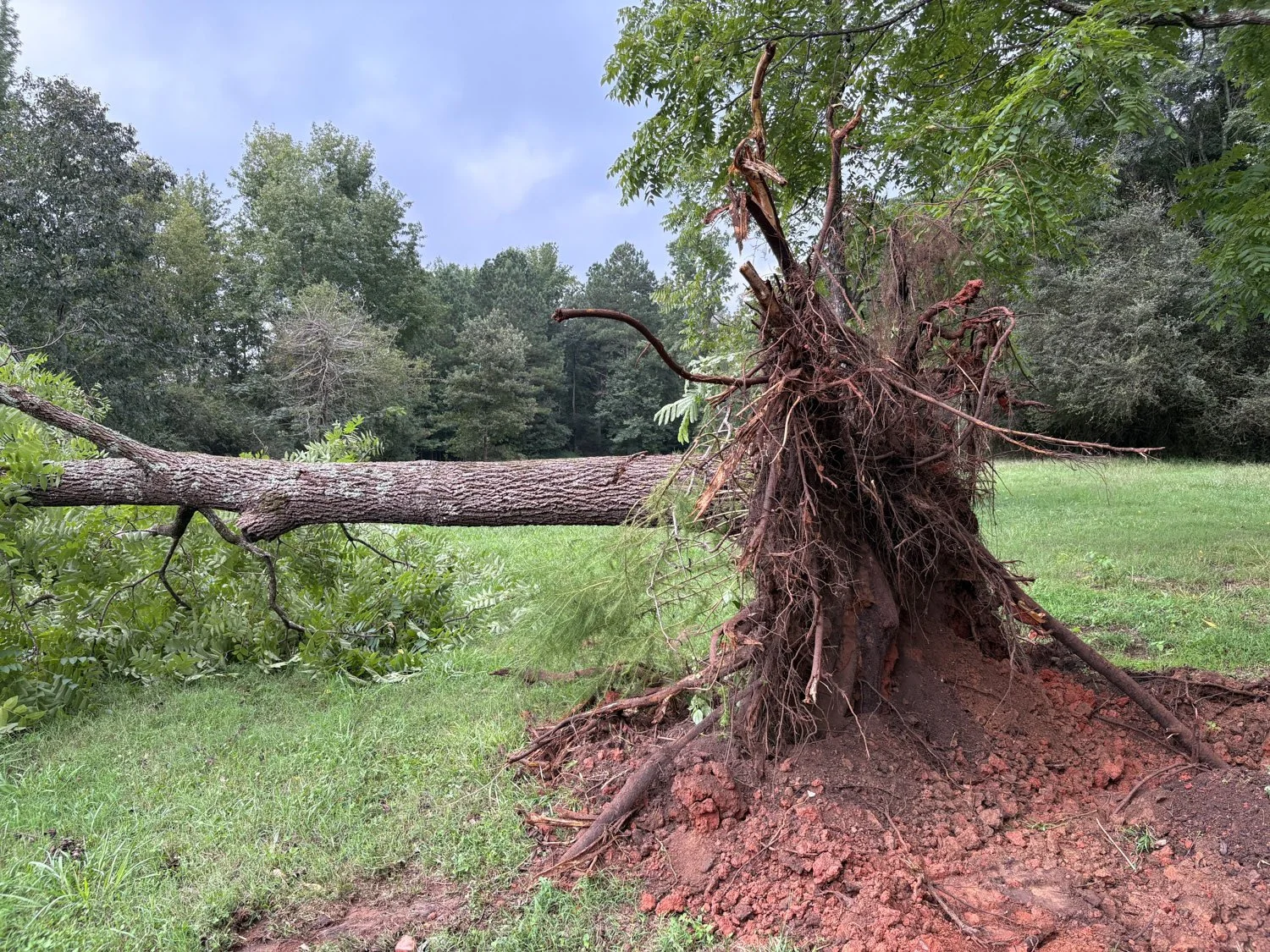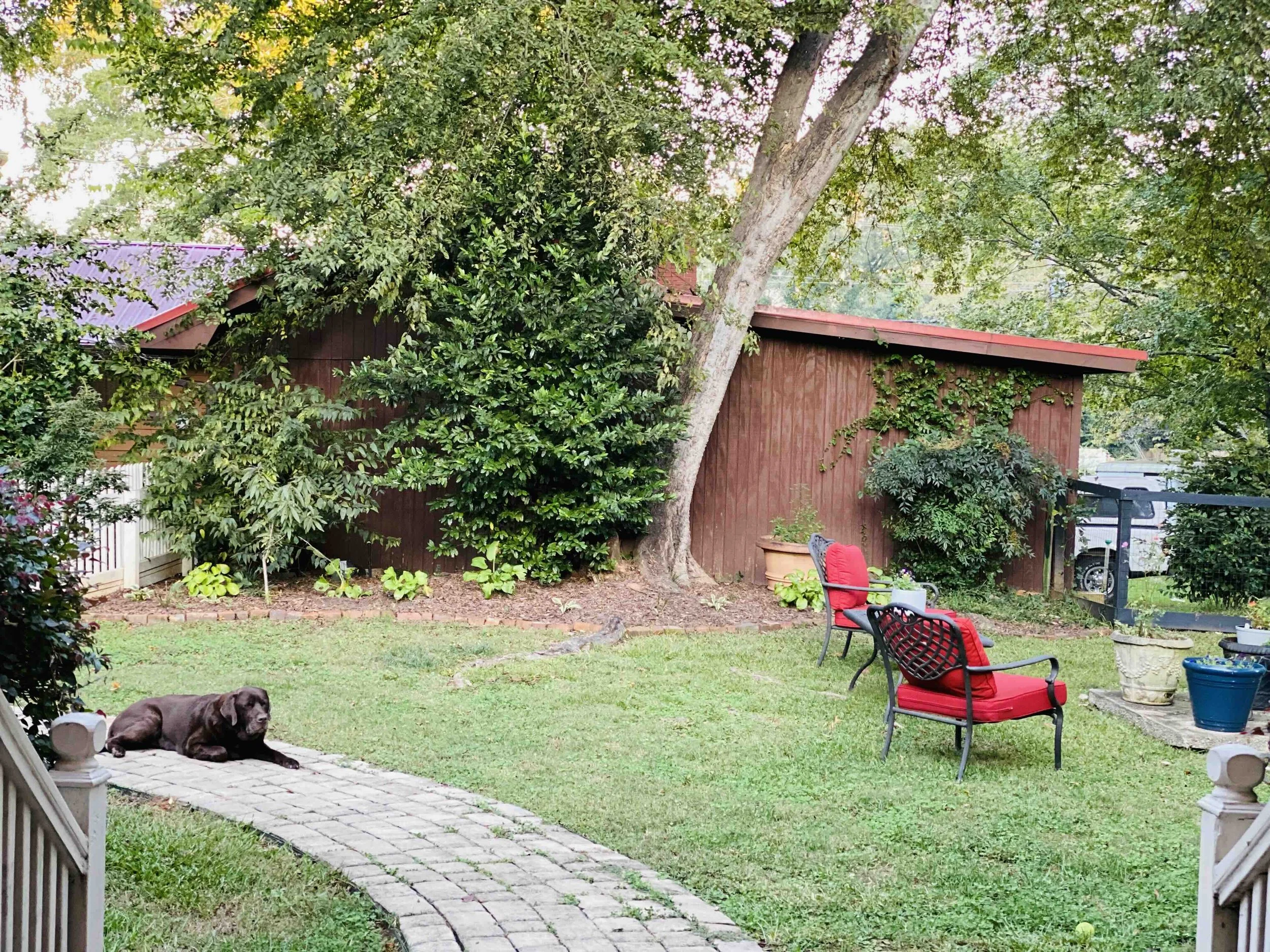Who Is Responsible When a Neighbor’s Tree Damages My Property?
Am I responsible when a neighbor’s tree damages my property? With all of the storms and rain this year the trees in my yard have grown so quickly. I’ve enjoyed the trees’ lush leaves, shade and the privacy & beauty they provide. The birds and bugs love it too (nature is loud!) it sounds like a jungle when we sit on the porch in the evenings. However, along with all of those wet growing trees comes more weight on them and thus falling branches and sometimes falling trees especially when the soil is soaked. Less than a block from our house a huge limb from an old oak tree fell and crushed the back of a neighbor’s home very narrowly missing the bedroom where the owners were asleep. The tree appears to be between 2 properties and I wondered, whose responsibility is it when that happens? Whose insurance company covers the damage? The answer isn’t as clear as you would think.**
View from the street of two dying trees behind our house
First let’s define who owns a tree.
In Georgia, the owner of the tree is the one who has the trunk of the tree on their property. If the trunk of the tree crosses property lines then both property owners are responsible for the tree. This means you both own the tree and thus need to communicate about the life, health and any big decisions regarding the tree. (to determine exact property lines a surveyor may be consulted)
Who is responsible for tree branches that hang over property lines?
If a neighbor’s tree branches are hanging over your property you have the right to trim the tree up to the property line. Several tree branches from our neighbors’ trees hang over our property and the electrical lines that run to our house. We trim those branches ourselves or pay a professional to do this for us. We always let our neighbor know beforehand as a courtesy and we take care to keep the health of the neighbor’s trees in mind while having them trimmed.
Who is responsible if a neighbor’s tree or large branch falls and damages your property?
If a neighbor’s tree or large branch falls on your property (yard, house, car etc..) under natural causes such as high winds or a storm, it is generally your responsibility to handle the fallen branch or tree, not the tree owners. Depending on the amount of damage, you would file a claim with your insurance company; the neighbor’s insurance would not cover it.
The tree we had removed that may cross property lines with our neighbor
However, if a tree has visible signs of disease or is dead the owner of the property with the tree may be liable. This is especially true if you have documented communication with the property owner regarding the visible signs of disease or death and the danger it presents. In this situation the tree property owner’s insurance may deny a claim leaving the tree owners liable for the cost of damages payable to the neighbor.
Since we live in a downtown historic city, the landscaping is mature and houses can be very close to each other. We’ve had a couple trees removed from our yard in the last 3 years - both of which appeared healthy. One of these trees seems to cross our property lines and we were unsure of who owns the tree. We have a good relationship with our neighbor so we initiated a conversation regarding what we should do and who we think owns the tree. The tree was a problem for both of us in that it dropped leaves and branches on her garage roof and the huge roots were beginning to affect our tiled walk way. In the end, neither of us wanted to pay a surveyor to inspect the property lines so we decided to remove the tree with both of us contributing to the cost of removal. Thankfully we had it removed because the tree was completely deteriorated in the middle and was weakening from the inside out as it aged. There is no way we could’ve known without cutting down the tree.
Now we are in discussions with yet another neighbor who has 2 huge trees on their property (but very near our property line) that are very obviously dying. If either of those trees fall on our house the results would be catastrophic. Since there is no dispute as to the visible danger the trees present to our properties we asked them to remove the trees. They are a young couple getting married in December and said they can’t afford to remove them right now. We’ve continued to initiate discussions with them and have come to an agreement to share the cost of tree removal. It is just not worth it for us to risk the possibility of life, limb and property to wait until they feel like they can afford to remove them on their own. Not only that, as many of you know, we had our home for sale this spring/summer. Feedback from potential buyers almost always included questions about removing the trees. One of the offers we received included a special stipulation that stated we would have them removed before closing.
View of the 2 dying trees from our backyard (click to enlarge)
With all of this in mind, what does it mean if you are buying or selling a home?
Be mindful of large trees on your property or a neighbor’s property
Branches that are too close to a home should be trimmed back to avoid damaging the roof and to prevent easy access for wildlife
Look for large trees that are unhealthy
Notice if trees are planted too close to a home
Consider consulting an arborist or a tree specialist if you have questions about any of the above.
Because tree laws vary from state to state it is not a topic many folks are familiar with. Due to the sheer number of storms and fallen trees in our area lately it is definitely worth reading up on this a bit more to stay informed. Here are some resources to give you more in-depth information on tree laws in Georgia:
Resources:
Athens Banner Herald - A Tree From My Neighbor’s Yard Fell On My Property, Am I Responsible in Georgia?
UGA Extension - Tree Ownership and Responsibility
Athens-Clarke County - Trees and the Law: The Legal Implications of Owning and Managing Trees in Georgia
*We are not legal professionals nor are we tree professionals so please consult an attorney with all of your tree law questions.



